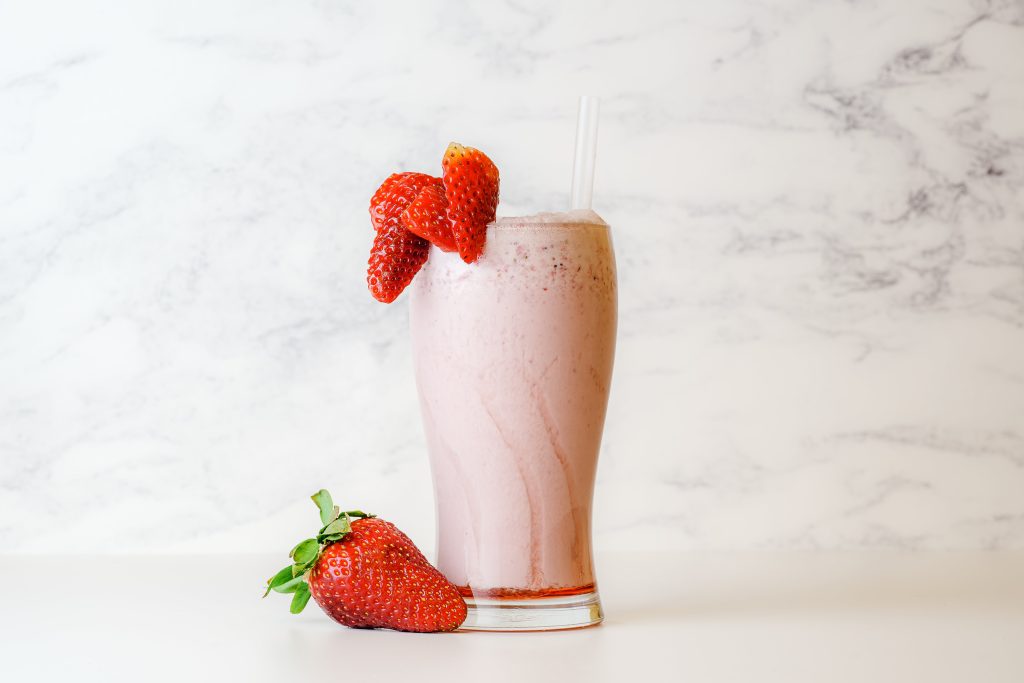In this article, we are trying to understand the pros and cons of why kids can drink protein shakes.
Yes, kids can drink protein shakes, but it’s important to approach this with caution and consideration. Here are some key points to keep in mind:
Nutritional Needs: Children have different nutritional needs compared to adults. Protein is important for their growth and development, but they usually get enough from their regular diet.
Consult a Pediatrician Before Giving Your Kids Protein Shakes

Before introducing a protein shake or any supplement to a child’s diet, it’s essential to consult with a pediatrician. They can provide guidance based on the child’s individual health needs and dietary requirements.
Whole Foods First: It’s generally recommended that children get their nutrients, including protein, from whole food sources like meats, dairy, nuts, and legumes. Supplements should not replace whole foods.
Age Matters: The age of the child plays a crucial role in determining whether they should have protein shakes. Younger children, in particular, should not consume adult protein shakes.
The amount of protein a child needs varies with age and activity level. Infants, toddlers, school-aged children, and teenagers all have different dietary requirements. Understanding these can help in making informed decisions about supplementing with protein shakes.
Other Factors to Consider

Type of Protein: If a protein shake is deemed necessary, choosing the right type is important. Many protein shakes designed for adults may have additives and levels of protein that are not suitable for children.
Physical Activity Level: Active children, especially those involved in competitive sports, might require more protein. However, this increased need is usually met through a well-balanced diet.
Homemade Alternatives: Homemade protein shakes with natural ingredients like fruits, yogurt, and a small amount of protein-rich foods can be a healthier alternative to store-bought shakes.
Before considering protein shakes, it’s crucial to look at natural protein sources like dairy products, lean meats, nuts, and legumes. These foods offer additional nutritional benefits that shakes might lack.
Avoiding Overconsumption: Too much protein can put unnecessary strain on developing kidneys and can lead to other health issues. While children can have protein shakes, they often do not need them if they are eating a balanced diet. If you’re considering protein shakes for a child, especially on a regular basis, it’s crucial to consult with a healthcare provider to ensure it’s safe and beneficial for their specific health needs and lifestyle.
Protein Shakes for Kids – Details

Protein is a crucial nutrient in everyone’s diet, especially in growing children. But when it comes to protein shakes, often marketed for fitness and muscle building, the question arises: Can kids drink protein shakes safely and effectively? This article explores the various aspects of introducing protein shakes into a child’s diet.
Are Protein Shakes Safe for Kids?
Protein shakes are generally seen as a convenient source of protein for adults, but their suitability for children requires careful consideration. These shakes often contain a mix of protein, vitamins, and sometimes sugar and other additives. The key is to understand which ingredients are beneficial and which could be harmful to young bodies.
Benefits of Protein in a Child’s Diet
Protein plays a vital role in the growth and development of children. It’s essential for building muscles, repairing tissues, and supporting overall growth. A protein-rich diet can contribute significantly to a child’s physical development, but it’s important to know how much protein is appropriate.
Potential Risks of Protein Shakes
While protein is necessary, too much can strain a child’s kidneys and lead to nutritional imbalances. Some protein shakes might also contain harmful additives or excessive sugar, which are not suitable for children.
Why Should Kids Drink Protein Shakes?

In some scenarios, such as for children who are highly active in sports or those who struggle to meet their protein needs through diet alone, protein shakes can be a beneficial supplement. However, they should not replace whole foods.
Preparing Homemade Protein Shakes
For parents considering protein shakes for their kids, homemade recipes can be a healthier alternative. These allow for complete control over the ingredients, ensuring that the shake is both nutritious and free from unwanted additives.
Conclusion
For active children, especially those involved in sports, protein shakes can be a quick way to replenish their bodies post-workout. However, it’s important to balance this with other sources of nutrition.
Many commercially available protein shakes are flavored and may contain added sugars or artificial sweeteners. Parents should be cautious of these additives and opt for natural or less processed options.

